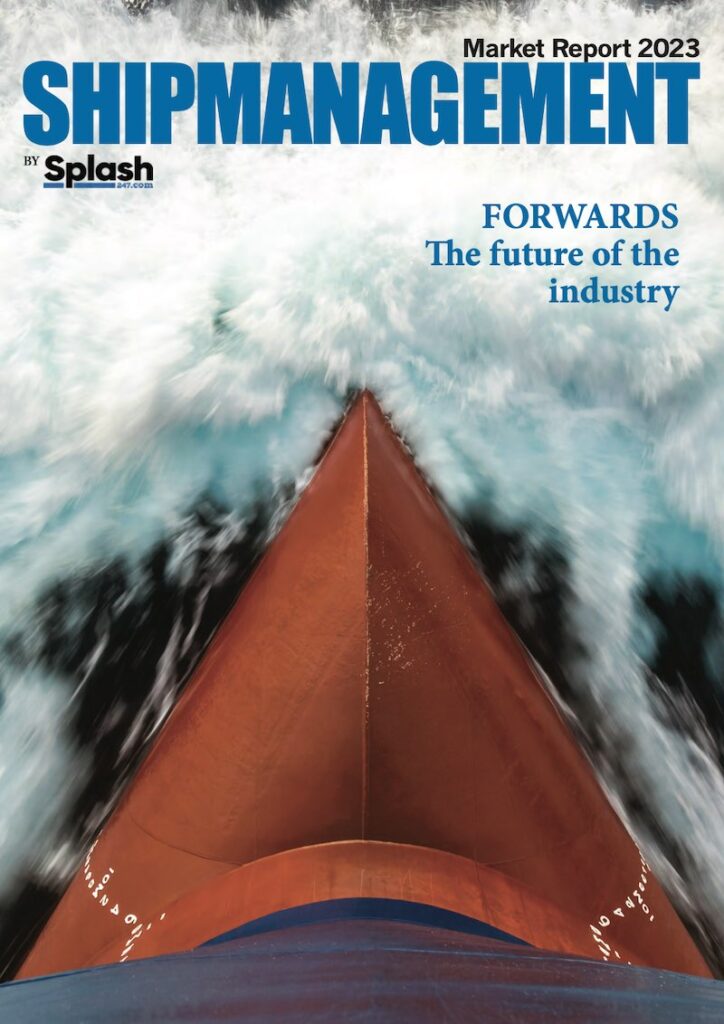Shipmanagement margins hit by global inflationary pressures

As with any consumer or business, shipmanagers have had to fight soaring inflation issues over the past year. Their problem? The hefty competition keeps a lid on how much they can raise their fees. This has led some to question the very business model of third-party managers.
The International Monetary Fund predicts global inflation to cool to 6.6% in 2023 and 4.3%in 2024, which is still above pre-pandemic levels of about 3.5%, but significantly lower than the 8.8% observed in 2022. All these numbers are a far cry from what most managers are able to negotiate in terms of annual fee increases.
“The shipmanagement sector remains highly competitive,” concedes Harry Banga, chairman and CEO of the Caravel Group, parent of Hong Kong’s Fleet Management. “Although annual fees are edging up, these are doing so at a slower pace than global inflationary levels,” he says.
Ian Beveridge, CEO of Bernhard Schulte Shipmanagement (BSM), admits shipmanagement fees remain a “challenge”.
“Market levels often don’t reflect required investments of managers in areas like digitalisation, expert teams and crew training infrastructure,” Beveridge tells Splash.
BSM is observing minor fee increases, but these are not in line with the inflation-driven cost increases the company is having to absorb.
“Profit in shipmanagement activities will continue to decline or remain stagnant at best,” says a none too optimistic Vinod Sehgal, CEO and managing director of SeaQuest Shipmanagement.
Scale, scale, scale
Danilo Fumarola, CEO and chairman of Monaco-based shipowner Gestion Maritime, says that increasingly the third-party model is based on scale, and profits are derived from the fleet size versus fixed costs ratio. Fixed costs include employees, training, welfare, offices, networks, partnerships, marketing, and finally technology and data management systems.
“With fixed costs rising quicker than annual fees, marginal profitability is heading south,” Fumarola says, suggesting this inevitably is leading to a scramble for greater consolidation with scale the overriding key to remain in the black.
Wrong focus
There’s a risk though for managers to be drawn into this scale-above-all-else argument, warns Carl Schou, the president of Wilhelmsen Ship Management. The current shipmanagement model is not sustainable, he says
“Shipmanagement has become a volume game. Everybody is talking about economies of scale to make a profit – very few are really focusing on the other value creating dimensions,” Schou says.
The current model, he says, is focused on volume instead of focusing on how shipmanagers can play a role in collaborating with owners and industry towards safer and greener operations.
“As long as the industry is only focusing on size we are more or less trapped in our current mould,” Schou says, adding: “Looking at the challenges ahead, we must think and operate differently.”
A shipmanager is paid a fee for managing the vessel, which has remained “more or less stagnant” in the past decade, according to Schou.
If this fee becomes unsustainable, Schou warns it becomes difficult for shipmanagers to do much beyond the minimum in order to be profitable to survive.
“It has become a catch-22 situation,” Schou explains, “as shipmanagers are not able to create value for owners, hence it is difficult to increase the fees.”
Good fit partnerships
Much of the problem lies in old school mindsets, argues Bjørn Højgaard, CEO of Hong Kong shipmanagement giant Anglo-Eastern.
“Too many owners think shipmanagement is all the same, and too many shipmanagers think they can serve any shipowner. Both are wrong,” Højgaard reckons.
Getting a good fit is important on both sides of the partnership, he says.
“When those principles are aligned, however, fees follow fulfilment, as it’s the provision of services aligned with the resources put in that create good solutions,” the Anglo-Eastern boss maintains.
This article is one of many reports carried in our brand new 68-page Shipmanagement Market Report. Splash readers can access the full magazine for free by clicking here.

